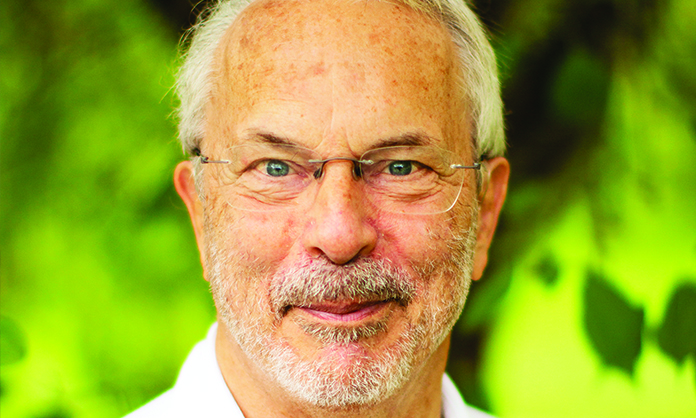On tuesday, German ambassador Thorsten Hutter hosted a lunch meeting in Windhoek, on behalf of the European Union, with the leader and the deputy leader of the Independent Patriots for Change (IPC).
Ambassadors of the EU, Portugal, Spain and France attended. In terms of diplomatic protocol and etiquette, it was a rather unusual move.
This was underlined by a Germany embassy post, on behalf of ambassador Hutter on X (Twitter).
It showed a photo of the participants and stated, among others: “Honoured to have the party president of the IPC for an exchange on current affairs in Namibia.”
As if this was not enough to raise eyebrows, an IPC spokesperson said in a statement on Wednesday that the discussions included the upcoming elections and IPC’s strategies addressing grievances among liberation struggle fighters.
He suggested it indicated “that Swapo’s hegemony received a massive blow”.
OH, THE IRONY
The exchange, which, according to ambassador Hutter honoured the hosts, and the subsequent triumphant tone of the IPC statement are somewhat ironic.
In the past, the very same IPC spokesperson has expressed strongly worded anti-Western, pro-Russian and homophobic opinions on X.
While not official policy statements, they were diametrically opposed to what EU member states stand for in terms of their policy orientation.
Rather, the statements actually conformed to dominant Swapo positions on these issues.
It therefore might be interesting to learn from the IPC what its motives were in bragging about this exchange at a time when its long promised – but not yet offered – transparency and accountability over the funding of their recently purchased fleet of cars remains a matter of public interest.
The publicity deliberately given to this event by those participating also invites speculation over the intended message.
The IPC can celebrate it as recognition over and above all other parties.
There doesn’t seem to have been similar consultations with Swapo nor the official opposition party, the Popular Democratic Movement (PDM), or any other political parties and their leaders represented with mandates in the National Assembly.
WHAT ARE THE REAL MOTIVES?
This invites questions about the motives at play and requires a clear explanation from the German ambassador and the EU mission.
It is also noteworthy that not all Western states with embassies in Namibia attended the occasion.
It should come as no surprise that Swapo, as the party in government, reacted strongly, considering such meeting could be regarded as undue interference in domestic policies.
Not least, as foreign minister Peya Mushelenga pointed out when summoning the ambassadors, by discussing matters which fall under the government’s discretion.
Other parties might feel similarly snubbed. After all, they will compete as much as Swapo and the IPC for voter support in the November elections and could also do with some kind of external recognition.
From a government perspective, it is – as vice president Netumbo Nandi-Ndaitwah pointed out at the Swapo central committee meeting yesterday – particularly annoying that the initiative was taken by Germany’s ambassador.
This is the very country which left a genocidal mark through its colonial rule. While bilateral negotiations are over, how best to come to terms with this past in the present remain pending and controversial.
Such interference certainly doesn’t contribute to mutual respect and reconciliation.
A hope, after all, which German president Frank-Walter Steinmeier expressed in his tribute at the funeral of the late president Hage Geingob.
THE STAKES ARE HIGH
By sheer coincidence, a frustrated citizen angered by non-delivery on promises, slapped a functionary at a Swapo campaign meeting the weekend before the diplomats rendezvoused with IPC president Itula.
The Namibian Economic Freedom Fighters (NEFF) rewarded the perpetrator with N$1 000 in recognition of his violent outburst and defiance.
Such unsavoury symbolic gestures border on instigating physical violence at a time when the election campaign is gearing up to enter the ‘hot’ phase.
The Western embassies’ interference, the IPC’s triumphalism, and populist tokenism by NEFF do not bode well for the months ahead.
Namibians should jealously guard their reputation for holding peaceful, democratic elections, with barely a hint of external interference since the country’s hard-won independence.
The tide might shift in terms of election results and the proportional representation of competing parties in the next National Assembly.
A seemingly tighter competition for the office of president might add to tensions and create a temptation to gain and secure ground by any means possible.
However, peace and stability should not be sacrificed and abandoned. The price would be too high.
In the long run, any winner would, just like ordinary Namibians, be a loser despite possible short-term gains.
Democracy includes transition and political changes. But political parties should always be guided by a common commitment to stability and peace.
This message should inform all political agencies whether in power or not.
Henning Melber is an associate of the Nordic Africa Institute in Uppsala, and extraordinary professor at the University of Pretoria and the University of the Free State in Bloemfontein. He joined Swapo in 1974
Stay informed with The Namibian – your source for credible journalism. Get in-depth reporting and opinions for
only N$85 a month. Invest in journalism, invest in democracy –
Subscribe Now!







